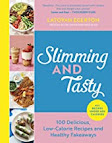How To Win At Work Lunches
With COVID19 heading over the horizon, it’s time to start refocusing on the normal practicalities of life. In case it’s been so long that you’ve forgotten, that means things like car servicing, grocery shopping and the last posting dates for Christmas. It also means getting back into some form of consistent work rhythm.
The basics of work lunches
It actually doesn’t really matter if you’re working from home or working from the office. Your approach to work lunches should probably be much the same. You’re going to want something you can prepare beforehand. You’re also going to want to eat it cold or just pop it in a microwave.
Technically, if you’re working from home you can cook lunch from scratch. In fact, technically, you may be able to do that in some offices. Realistically, however, you’re probably not going to have time or energy.
The key to preparing food in advance is to keep it dry. In other words, hold off adding any dressings or sauces. Also, be careful with adding juicy ingredients like tomatoes. If you want to use them then prepare them and put them in a separate container.
Start with carbs and protein
Carbs and protein are the building blocks of any meal. If you choose healthy sources of both, you’ll probably get plenty of fibre too. As a rule of thumb, you want about two-thirds carbs to one-third protein. This might seem like a lot of protein but protein does a lot to make you feel comfortably full over a long period.
As luck would have it, pretty much any form of carbohydrate can be partnered with pretty much any form of protein. What’s more, on its own almost any carb/protein combination can be eaten hot or cold.
Add plenty of vitamins and minerals
If you think that sounds like fruit and vegetables, then you’re right. What’s more, you should be going for whole fruit and vegetables rather than just downing juices and smoothies. The reason for this is that whole fruits and vegetables contain a lot of fibre.
This is important on its own. It also helps to counterbalance the natural sugars in fruits and some vegetables. That said, soup can be a great choice for a work lunch. Just try to leave plenty of chunks of vegetables so you still get plenty of fibre (and that “full-up” feeling).
If you need to cook vegetables (or fruit) do it the night before. That way you’ll be able to choose between eating your lunch hot or cold. You generally want to keep your fruit and vegetables separate from your carbs and protein and maybe from your dressing too. This helps to keep everything nice and crisp.
Seed your success
In principle, it’s fine to say that you should only eat at mealtimes. In practice, sometimes your energy levels are going to need a boost. You want to do this in a healthy, affordable and convenient way.
When you’re at work (or working from home), snacking on seeds and nuts is a great option. They’re easy to carry and store and have no odour so they won’t annoy any co-workers. They’re also both very nourishing and very filling.
%20(1).png)
.png)










0 Comments